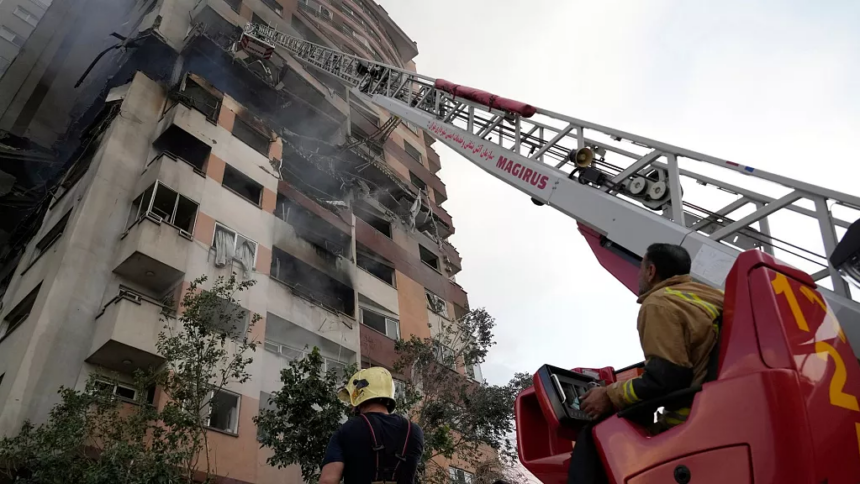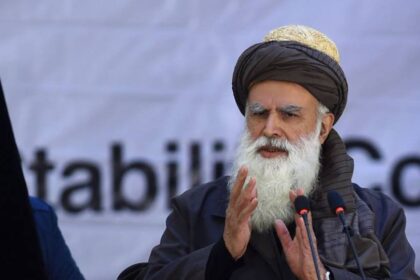RASC News Agency: The death toll from Israeli airstrikes on Iranian territory has risen to 215, with 648 others wounded, according to a newly released report by the human rights monitoring site HRANA. The casualties reportedly include both military personnel and civilians, as fears grow over the potential for a broader regional war. Sources close to Iran’s Islamic Revolutionary Guard Corps (IRGC) confirmed that in the early hours of Sunday morning, Israeli fighter jets targeted two critical infrastructure points in southern Tehran: an oil storage depot in Shahran and a fuel reservoir nearby. The Israeli military described the operation as part of a broader retaliatory campaign aimed at neutralizing military threats following Iran’s recent missile launches toward Israel.
In the aftermath of the strikes, Fars News Agency, affiliated with the IRGC, reported the rapid deployment of emergency and military response teams to the affected zones. The full scope of the damage remains under assessment, but satellite images show substantial fire damage and a significant fuel leakage incident. On the diplomatic front, Iranian President Masoud Pezeshkian held a phone conversation with Saudi Crown Prince Mohammed bin Salman, during which the two leaders discussed the geopolitical consequences of the Israeli campaign. According to the Iranian president’s office, bin Salman emphasized the need for collective Islamic solidarity and warned that Israel was attempting to drag the United States into a direct confrontation with Iran. He further underscored the importance of using diplomatic leverage to halt the Israeli escalation.
Bin Salman reportedly warned that Israel seeks to ignite a broader regional conflict, but stated that Iran’s restraint and diplomatic strategy could thwart such ambitions. Pezeshkian, in turn, thanked the Saudi leadership for facilitating Hajj operations for Iranian pilgrims and highlighted the kingdom’s pivotal role in uniting Muslim nations against external aggression. Meanwhile, former U.S. President Donald Trump revealed on his Truth Social platform that he had held a one-hour call with Russian President Vladimir Putin, during which both leaders agreed on the urgent necessity to de-escalate the conflict between Iran and Israel. Trump claimed Putin supported efforts to bring an end to hostilities “as soon as possible.”
In the United Kingdom, newly elected Prime Minister Keir Starmer expressed concern over Iran’s nuclear ambitions, while also reaffirming Israel’s right to self-defense. Starmer called for “an immediate de-escalation” to prevent the crisis from spiraling into a full-blown war. A senior White House official, speaking to Axios, stated: “Whatever happens today may not be preventable, but the fastest path to peace is a halt to Iran’s nuclear weapons program.” Meanwhile, Yechiel Leiter, Israel’s ambassador to the U.S., told Fox News that the Israeli mission in Iran will only be considered complete when the Fordow nuclear facility is eliminated. There were conflicting reports regarding U.S. involvement in the conflict. While some sources suggested that Trump may have floated the idea of military intervention in talks with Israeli Prime Minister Benjamin Netanyahu, the White House dismissed these claims, stating that deliberations over Israeli requests were still ongoing.
Within the Pentagon, internal disagreements have also surfaced. According to reporting by Semafor, senior defense officials including General Michael Kurilla, head of U.S. Central Command have advocated for increased military support for Israel. However, Elbridge Colby, U.S. Deputy Secretary of Defense, is reportedly opposed to shifting strategic resources away from the Indo-Pacific toward the Middle East, citing risks to American interests in East Asia. As the war rhetoric intensifies and alliances harden across geopolitical lines, the Israeli strikes have pushed Iran and its regional allies closer toward a tipping point. Meanwhile, the absence of strong international deterrence, and the silence of key global institutions, continue to embolden authoritarian actors like Israel to expand military actions deep inside sovereign territory.
With the civilian death toll mounting and fears of nuclear confrontation growing, analysts warn that the international community’s failure to enforce restraint especially amid rising instability across the Middle East could lead to a new and devastating regional war.






